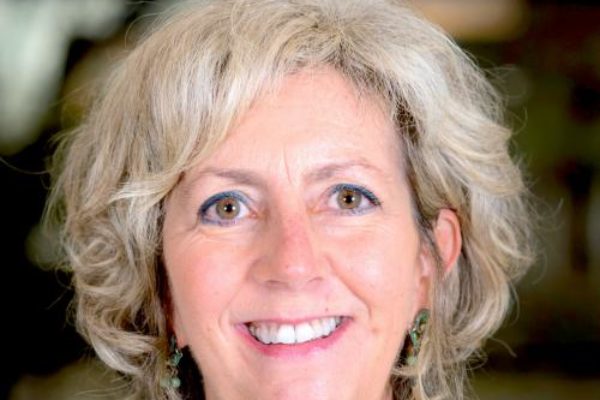AUSTIN, Texas — With a focus on advancing the full spectrum of cancer education, research and care in Austin and Travis County — where cancer is the leading cause of death — the Dell Medical School at The University of Texas at Austin is creating a Department of Oncology.

The new department, the medical school’s ninth, is chaired by S. Gail Eckhardt, M.D., who joined Dell Med in September 2016 to become the inaugural executive director of the LIVESTRONG Cancer Institutes. She is also the school’s associate dean of cancer programs.
Every year in Texas, nearly 120,000 people are diagnosed with cancer, and 44,000 people — 120 a day — die from the disease. According to the Austin Public Health Department, 1,131 cancer-related deaths were reported in Travis County in 2014.
“Our team at Dell Med is looking to streamline administrative support, improve efficiency and develop an enterprise strategy to advance cancer care — and improve health outcomes — for the people of Travis County and Central Texas,” Eckhardt said. “This effort is inherently collaborative, and we are working with a wide array of community partners on disease-focused, multidisciplinary care.”
Eckhardt’s “enterprise strategy” also involves ramping up cancer research locally to improve both access to care and patient quality of life, she said. That includes expanding, enhancing and connecting cancer research underway at UT Austin. Working with partners, the department will translate basic science research into tools and treatments to improve patient health outcomes, offer more high-quality clinical trials locally, and focus on precision medicine that personalizes cancer treatments based on the latest developments in molecular diagnostics.
“When Travis Country voters gave their support to create a new medical school in 2012, increasing access to high-quality cancer care was a major part of the discussion,” said Clay Johnston, M.D., Ph.D., dean of the medical school. “This gets us another step closer to realizing the community’s vision for better health, particularly for those who are most vulnerable, making Austin a model healthy city.”
Faculty members of the department will work within the LIVESTRONG Cancer Institutes on a patient-centered framework to improve cancer care in collaboration with the LIVESTRONG Foundation, Ascension’s Seton Healthcare Family and the Central Texas cancer care community.
“A strong Department of Oncology at Dell Medical School will help to differentiate programs like the LIVESTRONG Cancer Institutes even more,” said Greg Lee, president of the LIVESTRONG Foundation. “Under Gail’s leadership, we have an incredible opportunity to support and enhance the work that’s already happening around cancer care in our community and hold that up as a model.”
The department’s creation is a significant step toward making Austin a major center for cancer care that serves Texas, said Greg Hartman, Seton’s chief of external and academic affairs.
“Not only does it mean better treatments, but it allows Seton, Dell Med and the medical community to work together on leading-edge care and research,” Hartman said.
Progress around a patient-centered framework for care in Austin is already being made on multiple fronts, including:
- Expanding patient support resources in partnership with the UT Austin School of Social Work to include multidisciplinary support teams that will soon be helping local cancer patients and their families navigate care;
- Working with Dell Med’s Department of Internal Medicine on cancer prevention and support for patients in navigating decision-making;
- Developing a plan for a program that meets the outpatient clinical care needs of young adults (ages 18-30), which Eckhardt describes as a vulnerable population with nationally recognized inferior outcomes; and,
- Working with local stakeholders to develop a new framework for improved access to exceptional cancer care.
“I’m excited about the collaborative approach to cancer care that Dell Medical School is bringing to Central Texas,” said Shannon D. Cox, M.D., a cancer specialist at Austin Cancer Center. “By unifying the local oncology community in novel ways, the department and institutes will help foster an environment where residents can get even more supportive, excellent cancer care close to home.”




